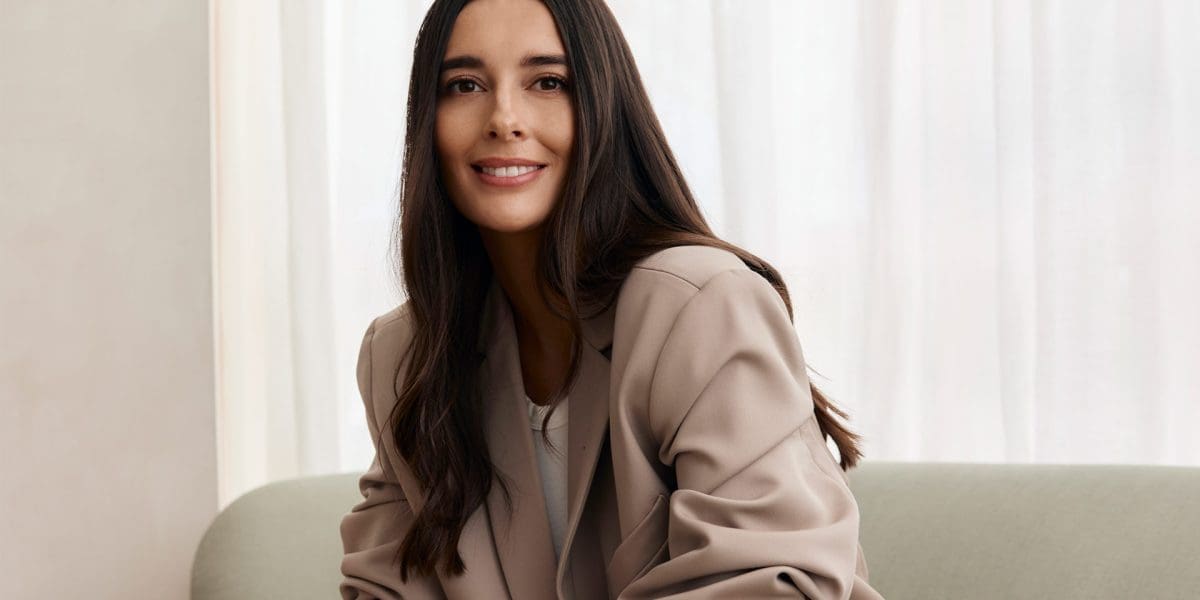Jaimee Lupton Talks The Democracy Of Beauty & Being an Entrepreneur
As the co-founder of iconic beauty brands MONDAY Haircare, Osāna Naturals and Châlon Paris, Jaimee Lupton has shaken the market and made a name for herself both here and overseas. MONDAY is available in 37 countries and is now considered New Zealand’s biggest beauty brand ever. Recently she and her partner ZURU co-founder Nick Mowbray also welcomed a new baby into the world, but this hasn’t put the breaks on her latest venture Châlon Paris. We sat down with Lupton to pick her brain over the challenges she’s faced, how the beauty world is evolving, and the advice she has for other entreprenuers following in her path.
What inspired you to start Châlon Paris, did you see a gap in the market?
I saw a lack of luxuriously fragranced hand and body care available in a mass setting and wanted to make beautifully scented, stylishly packaged products both accessible and attainable. As I saw with MONDAY, gone are the days where premium formulas and packaging were reserved only for luxury, niche brands. Châlon not only looks beautiful, but we’ve worked hard to ensure it includes high-quality, functional ingredients such as hyaluronic acid, along with sustainably sourced fragrance and essential oils.
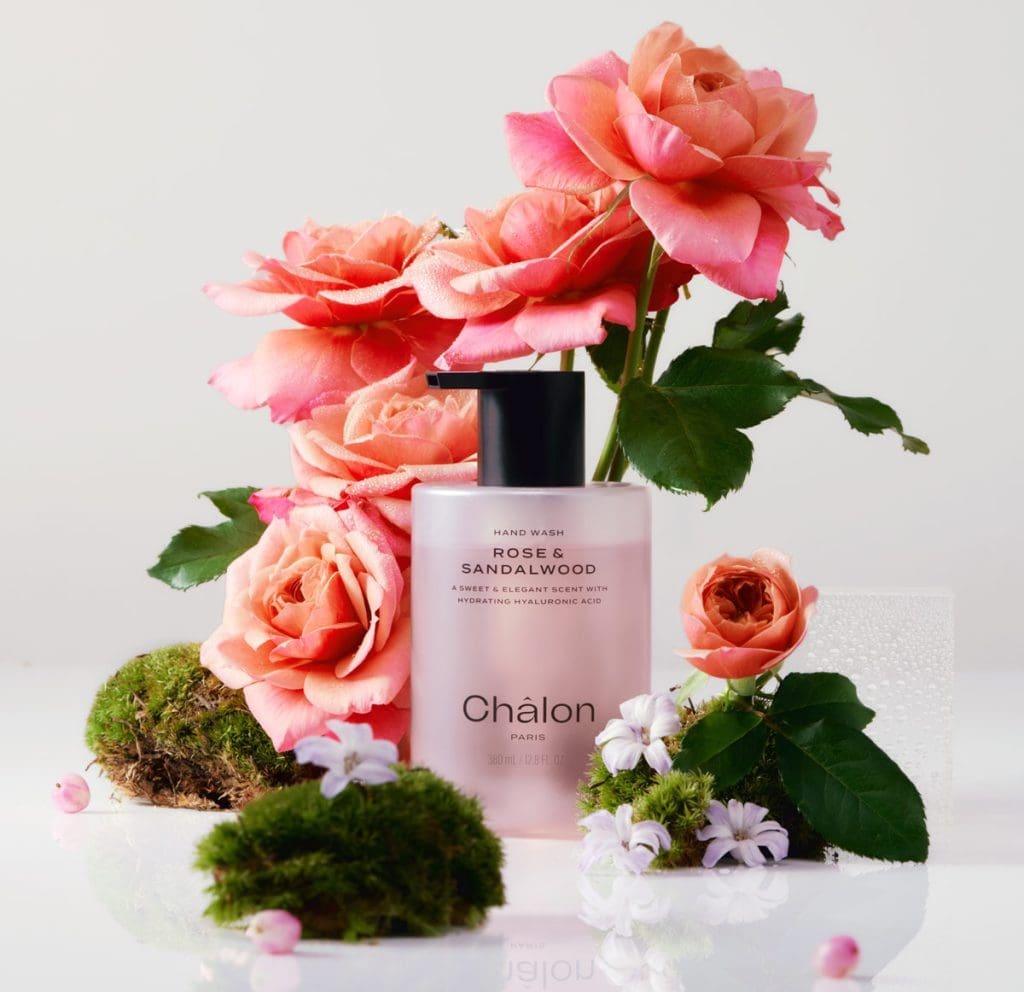
What does democratising beauty mean to you?
“Exclusivity” used to be the buzzword in beauty, but being “exclusive” means someone is always left out. There’s much more of an understanding these days that beauty isn’t just reserved for one group of people: it’s for everyone. To me, democratising beauty means not only ensuring everyone feels seen and represented, but also making products readily available and accessible in a mass setting.
Has motherhood changed your perspective on things?
Definitely. It took us a lot to get here and to have Noa with us, so I’m more focused on how I spend my time when it’s not with her. It’s also solidified my commitment to loving what I do and being passionate about it. If I have to be spending time away from Noa, I want to be sure it’s doing something I love that’s going to bring me fulfilment and purpose. I’m lucky to have that. I’m proud to be raising a daughter and a future young woman in this world: I want to show her that whatever dad can do, mum can do too, and that she’s just as capable as her male counterparts.
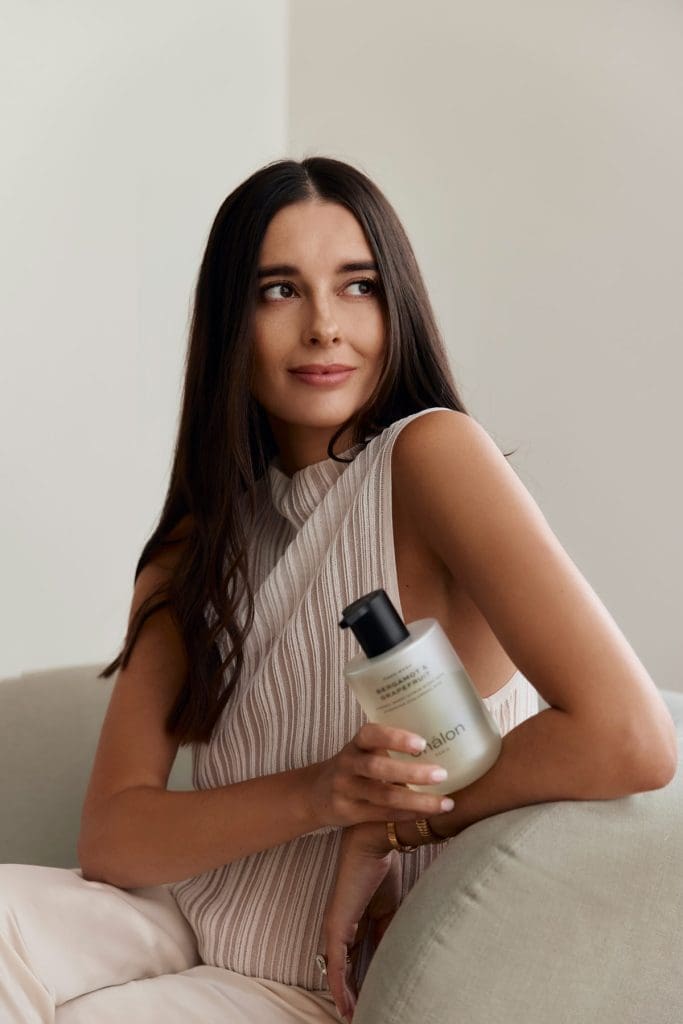
What was your process for evaluating market potential for this?
When it comes to market potential specifically, we spend a lot of time looking at data and emerging trends, and considering the gap in the market, or what we call the “white space”. In part thanks to the proven success of MONDAY—we’re now in almost 40 countries and 65,000 doors with 100 of the world’s biggest retailers—we have been able to have conversations with our retail partners where we’re filling a gap for them in their offering that we’re confident consumers are looking for, but aren’t currently finding at mass.
What are the big trends in the beauty industry at the moment?
We’re seeing the ‘skinification’ of categories like haircare and bodycare, whereby the same focus that we have for skincare is expanding into other categories. So you’ll see ingredients such as hyaluronic acid, vitamin C and retinol appearing in body care products, as people become more conscious of expanding their beauty routines and their idea of beauty being more head-to-toe. Châlon’s formulas contain hyaluronic acid at an active level, as we identified it early on as one of those skincare ingredients that is incredibly hydrating and beneficial for the rest of the body, too.
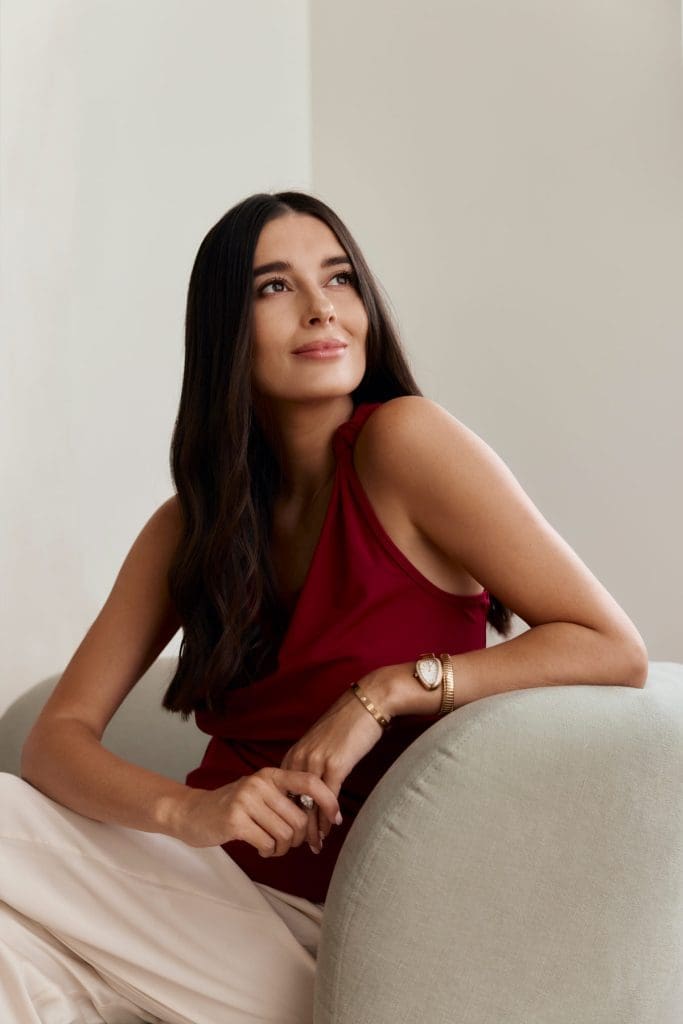
You have a huge business profile, does that bring a certain pressure with it every time you spin up a new venture?
I think it does. I try not to let that pressure come from external sources though: often the internal pressure you put on yourself is enough! Of course you want something you and your team have worked hard on to be a success, but that’s never a sure thing. Success also looks different from brand to brand, and one person’s idea of success might be totally different to another’s. You have to be content in your own work and your own version of success.
My ideas of success and purpose have shifted over time, and our fertility struggles especially gave me a new perspective on what that looks like. Our first daughter Gingernut was born perfect, but still, in 2022 and I connected with a lot of people around that time who unfortunately shared in that experience. I decided while I was pregnant with our second daughter that I wanted to help those on their fertility journey, as Gingernut’s legacy. Our charity Gingernut’s Angels was established earlier this year, whereby we’ll be making grants to those who require financial support for fertility treatments such as IVF. It’s given me a huge sense of purpose to think there could be children born all over New Zealand as part of our daughter’s legacy.
Your brands are all over the world, what’s the benefit of operating out of little old New Zealand?
We’re a global business with offices in Sydney, Auckland, Los Angeles, Shanghai, Shenzhen, Ho Chi Minh City, Hong Kong, Copenhagen, Chicago and Ontario (just to name a few) and my partner Nick and I spend a lot of time travelling to visit our teams and to meet with other stakeholders. Being a global business means hiring people who are experts at what they do, no matter where they are. That said, having a base in New Zealand means we get to spend time with family and friends on the rare occasions we’re not working, which does help when you’re running your own businesses and don’t have a lot of downtime.
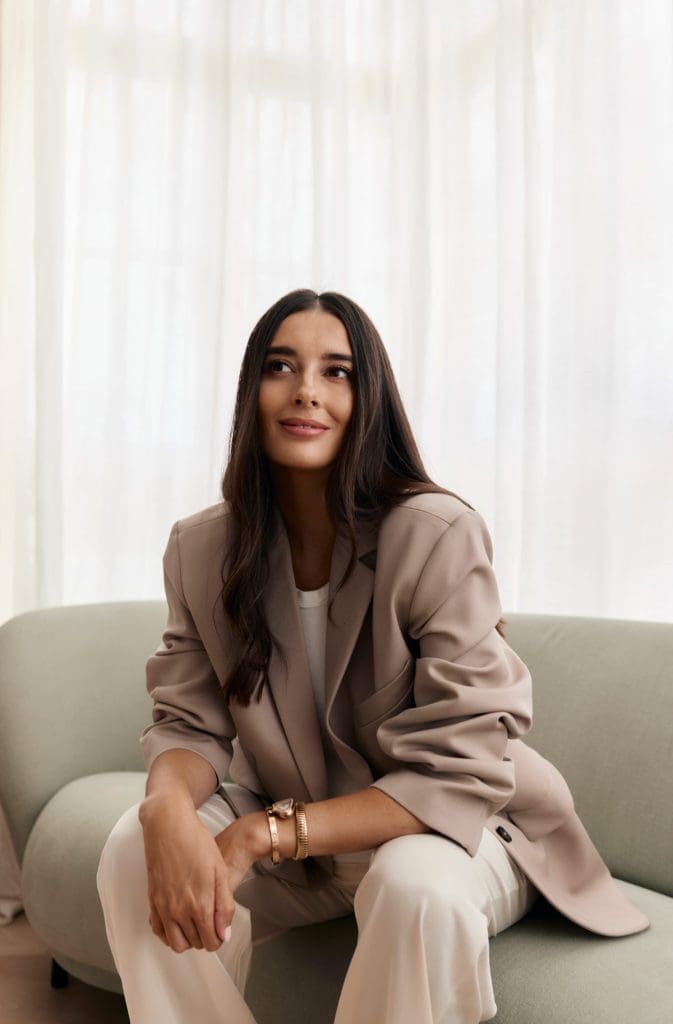
New Zealand tends to be quite reserved when it comes to success, do you think the Tall Poppy syndrome holds us back?
I’ve found that it does on the way up, but once you get to a certain level of “success” it stops. Perhaps that’s down to people feeling as though you need to prove yourself. That said, New Zealand is a small place filled with genuinely kind people, and I think once people realise what you’re trying to achieve they’re generous with their support. Sometimes it’s about humanising the person behind the idea or business.
Can you talk about some of the hurdles you’ve had to face on your entrepreneurial journey?
Self-doubt would be a big one for me. I had a strong brand and marketing background when I started MONDAY, and was lucky to be surrounded by experts who knew things I didn’t. My partner, Nick, is an incredible businessperson, and I like to say I went to the University of Nick Mowbray! That said, I doubted myself a lot and felt out of my depth often. It gets better with time, but it’s a part of building a business and I think is something a lot of entrepreneurs deal with that doesn’t get spoken about often.
What advice do you have for other entrepreneurs looking to get a brand going with a global footprint? If you don’t want to give away all your secrets I understand.
The advice I give is just to get started. Of course it’s important to have goals and a strong idea of what success looks like for you and your business, but thinking about a global footprint when starting from scratch can feel intimidating and overwhelming. Just start with where you are and what you have, and you will work things out as you go. You’ll make mistakes as you go and feel out of your depth a lot of the time, but that’s all part of the process. Keeping your eye on your North Star will help.
Also, seek out people who have already found success, who are living what you’re trying to do, and ask them about the process. You’ll be surprised how many people are happy to talk about their industry and how they got where they are today. I’m a big believer in this, and to this day am constantly speaking to other female beauty founders (Anna Lahey of Vida Glow and Ava Matthews of Ultra Violette have been especially invaluable). We support each other and bounce ideas off each other for the others’ insights.
